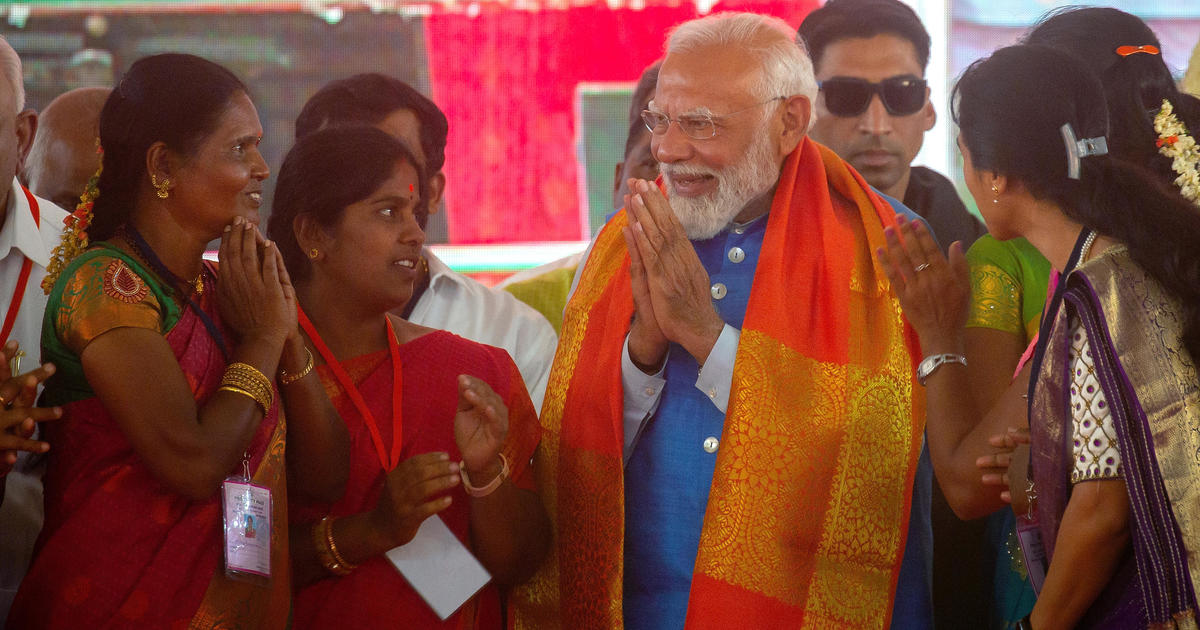Georgia officials continue to point fingers in wake of chaotic primary
Questions about why Georgia's primary this week was characterized by hours-long lines, polling machine problems, staffing shortages, chaos and uncertainty are now under investigation by the state. And state and county officials have already begun blaming each other for the multiple mishaps.
In some cases the hours-long lines stemmed from problems surrounding the polling machines. Poll workers in various counties were unable to work the state's brand new voting machines unveiled for this election — at a cost of $105 million. At this point, problems with the voting machines appear to be predominantly a problem of implementation and training, and that, Secretary of State Brad Raffensperger claimed, is not his fault.
"The Secretary of State's Office cannot administer elections, every Georgia county is charged with that responsibility. But what is clear from yesterday, is that while almost every county delivered successful elections—a couple did not." Raffensperger said in a statement late Wednesday. "It is the responsibility of the counties to properly deliver and install equipment. It is the responsibility of the counties to properly train its poll workers."
Gabriel Sterling, Georgia's statewide voting implementation manager referred to Georgia statute OCGA 21-2-70, which outlines the responsibilities of superintendents in counties and municipalities for training and equipping poll workers. However, that same statute says that counties are to oversee and purchase election equipment "except voting machines."
This is not the first time the state has transitioned to new voting machines. During the 2002 election cycle, Georgia Secretary of State Cathy Cox installed the state's first iteration of electronic voting. Cox, the last Democrat to serve in the position, told CBS News that only a secretary of state could carry out effective training for new machines. She said that in 2002, her office detailed an "exhaustive poll worker training program" when it implemented the new voting system.
"It was very much a county-controlled process before 2002. But from 2002 since, the secretary of state's office has determined what type of equipment counties are going to use and has had far greater responsibility for how it's used." Cox said.
And compounding the problems for the primary, Cox pointed out that "the counties had no way to do effective poll worker training because they didn't know the new equipment. They didn't have any way. They didn't have access to it. They didn't know who the vendor was."
Despite Raffensperger's contention that the blame lies with the counties, Cox said that "only the secretary of state really could have done effective poll worker training this year with the new rollout of equipment."
David Becker is the executive director of the Center for Election Innovation and Research and a former Justice Department Civil Rights Voting Section attorney who served as the lead for Georgia under both Presidents Bill Clinton and George W. Bush.
He doesn't entirely agree with Cox, and argues that though Georgia could have done more to ease the transition, it's counties that are primarily responsible for the training of their poll workers.
"In Georgia and in fact, in most places around the country, the counties are the ones who are responsible for recruiting and training, poll workers, for selecting polling sites, et cetera." Becker said, adding, "There are things the secretary can do in terms of creating standards and providing resources that are within his power as well. But the secretary of state's office is not in charge of training poll workers in Georgia."
Becker called Tuesday's events "a perfect storm," with a clash of many different variables, one of which he suggested was within Georgia's power. "When they last shift the voting technologies it was not done in a presidential election year," he said and went on to note the factors that were out of the state's control: "It was not done while a pandemic was ongoing. I mean, this election looks a lot different without the pandemic and with full staffing at all the polling sites."
Amid Tuesday's voting mayhem, Raffensperger's office singled out Fulton and DeKalb Counties as the only counties experiencing problems, a claim that many in the state have disputed. It's true that Fulton County, Georgia's most populous county, experienced the greatest share of problems. It also has the largest population of black residents, over 44%. In a press conference Tuesday night, Fulton County Department of Registration and Elections director Richard Barron listed several reasons for voting failures: poll workers who didn't show up Tuesday, the county's inability to hold in-person training for the new voting machines amid the pandemic, and last-minute polling location changes.
Barron also said of the fact that Raffensperger was blaming the counties that "he's the head election official in the state, and he can't wash his hands of all the responsibility for this election." He thinks that going forward, the county heads should have a post-mortem on the primary.
"We need to make sure that we all have the resources to go forward, and we need to make sure that we get the support from the secretary of state's office," Barron said, adding that "we need the secretary of state's office to be involved in that process and show some leadership and not point the fingers at the counties and view us as partners in this process."
Fulton County is one of several counties in the state that was forced to extend voting hours due to precinct problems.
Others view Tuesday's events as another chapter in a long book of voter suppression within the state. Atlanta Mayor Keisha Lance Bottoms called the election a "complete meltdown," saying the failures of the primary election occurred during early voting and in the mail-in voting process.
"The layers of the voter suppression and the breakdown of our election system in Georgia run very deep," Bottoms said.
And former Georgia 2018 gubernatorial candidate Stacey Abrams, who experienced problems with her own absentee ballot, in an appearance on "CBS This Morning" pointed at Raffensperger.
"While the target may be communities of color, maybe voters of color or Democratic voters, it hits everyone," Abrams said Wednesday. She added, "And that's the crux of the lawsuit that we filed in the wake of the 2018. The secretary of state is the superintendent of elections. That means it's his job to make sure that democracy works in every county — that it shouldn't matter where you live."
During a press conference Tuesday, Abrams said her organization, Fair Fight, would be looking at taking legal action soon.
Almost everyone in the state agrees both counties and the state need to figure out how to ensure these problems don't occur in November, when turnout is sure to be much higher for the presidential election. Even if COVID-19 remains a concern, experts believe millions of American voters will still vote in person, rather than by mail.
"We're all learning. How do we recruit poll workers during a pandemic? How do we get people to volunteer to serve for 16 hour days in a polling site around dozens or hundreds of other people? That's going to be an ongoing challenge." Becker said.
Georgia Governor Brian Kemp remains optimistic, saying in an interview with WSB TV Wednesday that he's "not too worried," about November.
"I think there's plenty of time to fix the problems. I think, certainly, there's going to be a lot of motivation to do that." Kemp added, "I think it'd be good to have some honest discussions about what is going to be the best way to deal with a large turnout that we're certainly going to see and how we don't have people standing in line for a long period of time."
One of the high-profile races on Georgia's ballot, Tuesday, was the Democratic Senate primary race that Jon Ossoff clinched Wednesday night, according to the Associated Press. Ossoff, who won over 50% of the vote, will avoid a runoff in August, facing incumbent Republican Senator David Perdue in November.



